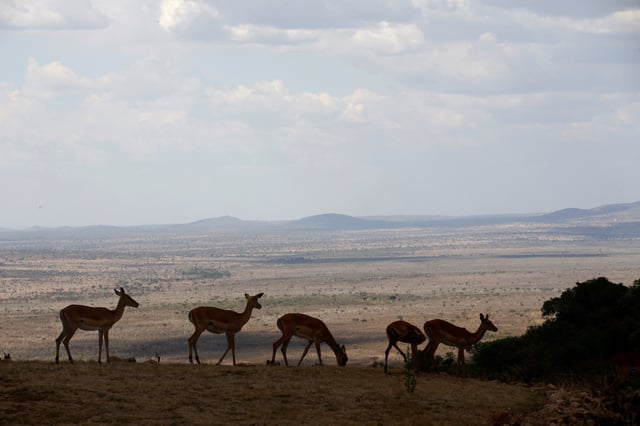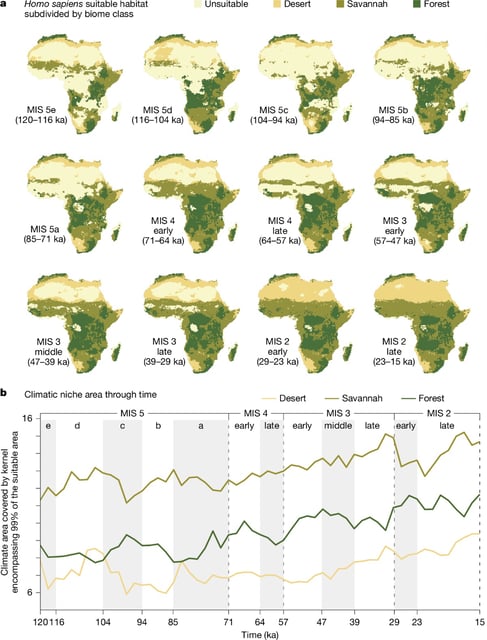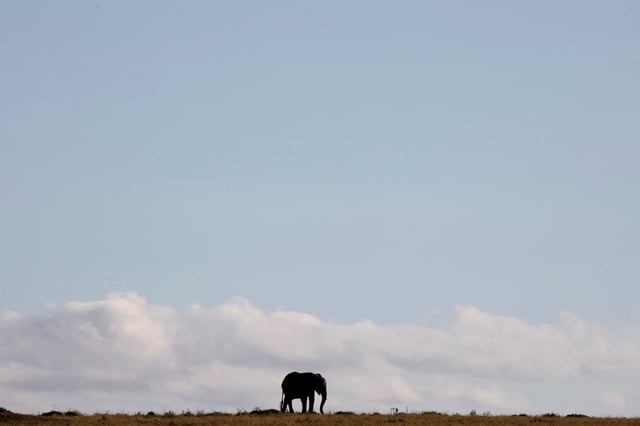Overview
- New data show that around 70,000 years ago, Homo sapiens began expanding their ecological niche by exploiting multiple habitat types in Africa in ways not seen before.
- Archaeological records indicate early humans spread into Central and West African forests and North African deserts in the 20,000 years preceding their major dispersal.
- Researchers argue that the rise in ecological flexibility was powered by cultural advances such as knowledge sharing and cooperative behavior.
- Many earlier attempts to leave Africa left no genetic trace likely because they lacked the adaptive breadth to survive in challenging habitats.
- This built-in adaptability underpinned the successful migration around 50,000 years ago, founding all non-African human lineages and enabling further settlement of Eurasian landscapes.



